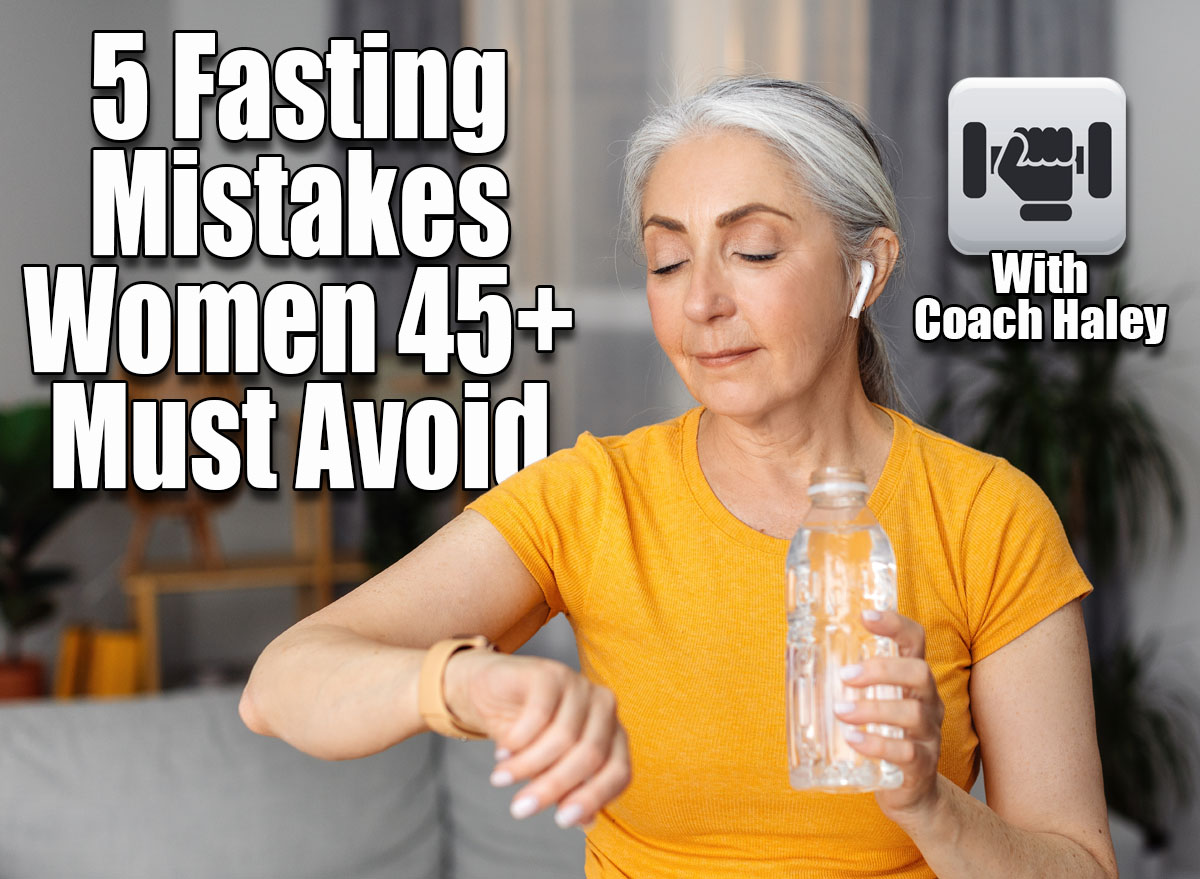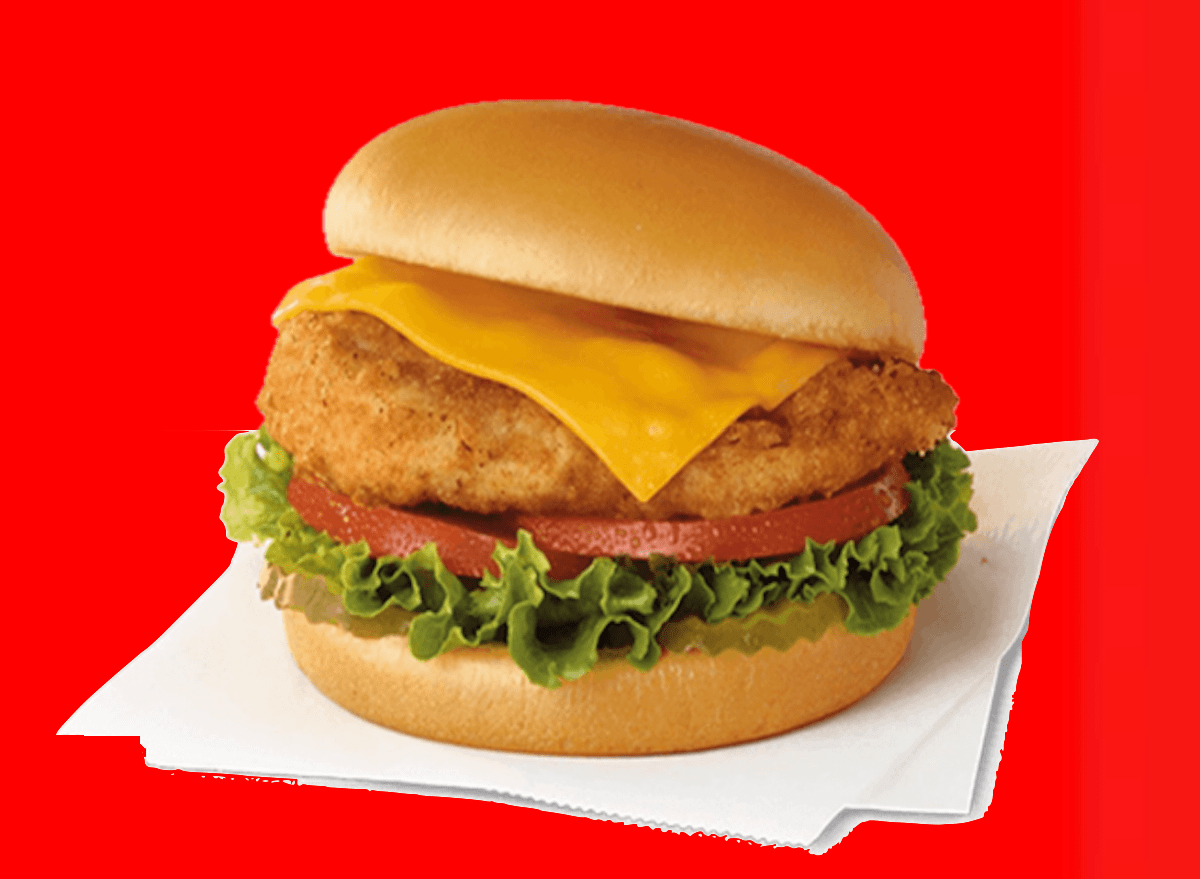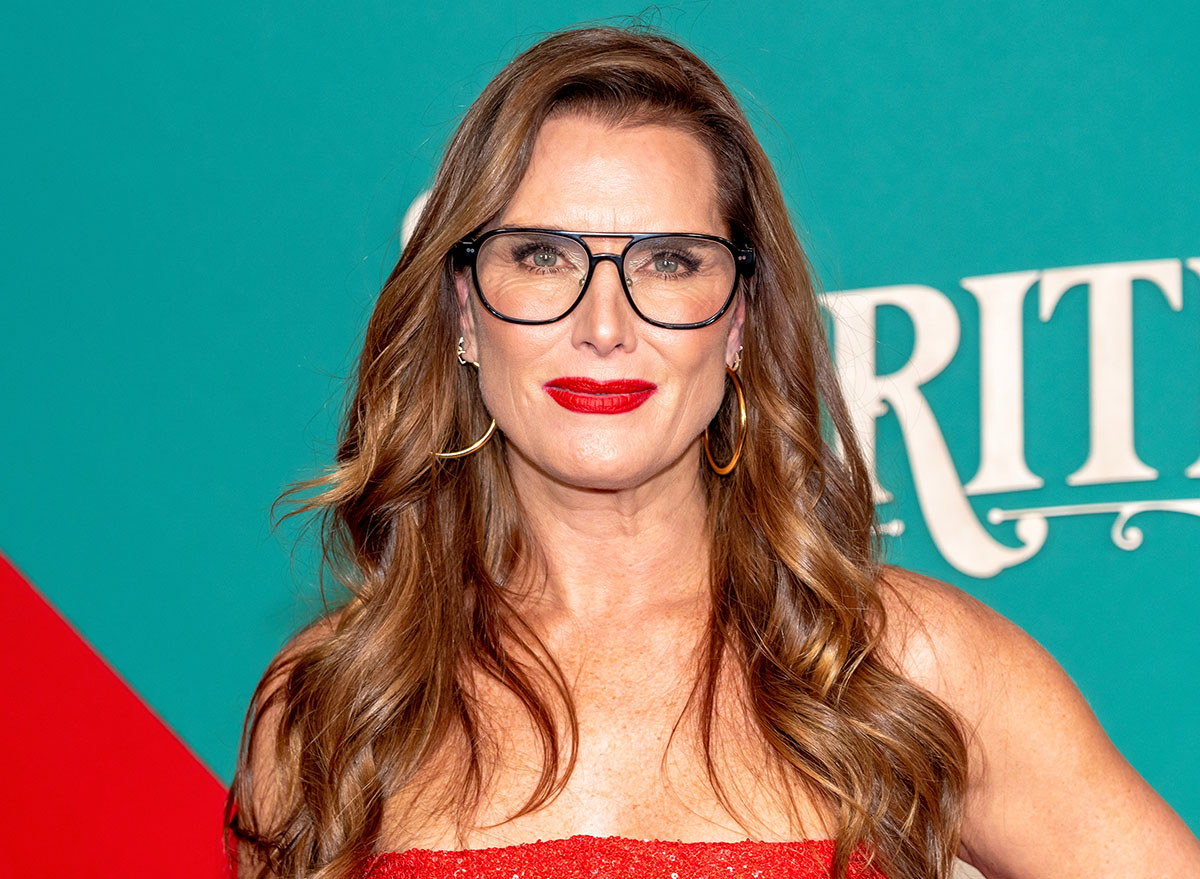Intermittent fasting can be a powerful tool to aid in weight loss goals, especially for women going through menopause. As hormones shift it’s easier to gain weight and challenging, but not impossible to lose.
“As women age, we’re essentially fighting against time, as in, the biological changes that make weight loss feel like an uphill battle,” says Haley Pulli, Head Coach, MyBodyTutor.
She explains, “Our muscle mass naturally decreases, which directly slows our metabolism since muscle is what burns calories even when we’re resting.”
Many turn to intermittent fasting, which can provide promising results, but if you’re not seeing the scale tip in your favor, you could be making a common mistake.
Eat This, Not That! spoke with health and weight loss experts who reveal the dos and don’ts of intermittent fasting and how to get the best outcome.
Not Eat Enough Protein


Protein is something we need, especially as we age, but some can make the error of not eating enough protein while fasting.
“Another big one is skipping protein: muscle loss accelerates in midlife, and adequate protein is critical for women over 40,” says Terry Tateossian, an ISSA Nutritionist and ISSA Personal Trainer, IIN Hormone Specialist, IIN Emotional Eating Coach, and the Founder of THOR: The House of Rose.
She explains, “It is not an option. It is a requirement. Ignoring sleep and stress: Fasting can be a stressor; if your sleep is poor or life is chaotic, it may backfire.”
So how much protein do you need?
According to Jason Itri, MD, PhD, Founder at Longevity Health Clinic, “For menopausal women, distributing 20-30 grams of high-quality protein per meal, starting with breakfast, has been shown to dramatically reduce cravings and support long-term weight management.”
Fasting Too Quickly


Intermittent fasting is an effective approach to weight loss, but it’s something to ease into, experts warn.
“The biggest mistake I see too often is women going too extreme too fast,” says Pulli.
“Your body doesn’t need to be shocked into submission.”
She suggests starting with a 12-hour window and slowly extending it.
Under-Eating


Eating in an eight-to-10-hour window is supposed to help curb appetite and cut calories, but undereating can become a problem.
“Under-eating can lead to nutrient deficiencies and rebound overeating or binge eating,” says Tateossian.
Breaking Your Fast with Junk Food


How you break your fast also matters. Loading up on junk or sugar isn’t healthy.
According to Pulli, “Your first meal sets the tone for your entire eating window, so make it count with protein, healthy fats, and fiber.”
Tateossian explains, “Fasting is a tool. A strategy. A plan. And maybe that strategy is deployed at some point in your weight loss journey. It’s not an all-or-nothing approach. And it is not a punishment.”
She adds, “The idea is to go into a mild progressive caloric restriction over a period of time (or dieting phase) and get out as quickly as possible. That requires a sustainable strategy that is doable without the constant yoyo swings of restrict and binge. That’s when we get stuck and frustrated that nothing works.”
Not Listening to Your Body


Intermittent fasting isn’t for everyone and your body will give you signs that it’s not right. Ignoring them can be harmful.
“Failure to recognize warning signs that indicate excessive fasting behavior, such as sleep problems, low libido, and fatigue,” is a major mistake, says Dr. Bronwyn Holmes-Mahtani, M.D., a board-certified physician and member of Eden’s Medical Advisory Board.
Pulli adds, ” If you’re feeling dizzy, exhausted, or your cycle becomes irregular, that’s your body asking for adjustments. The goal isn’t to punish your body into change, but to love it enough to want to get better.”














Leave a Reply